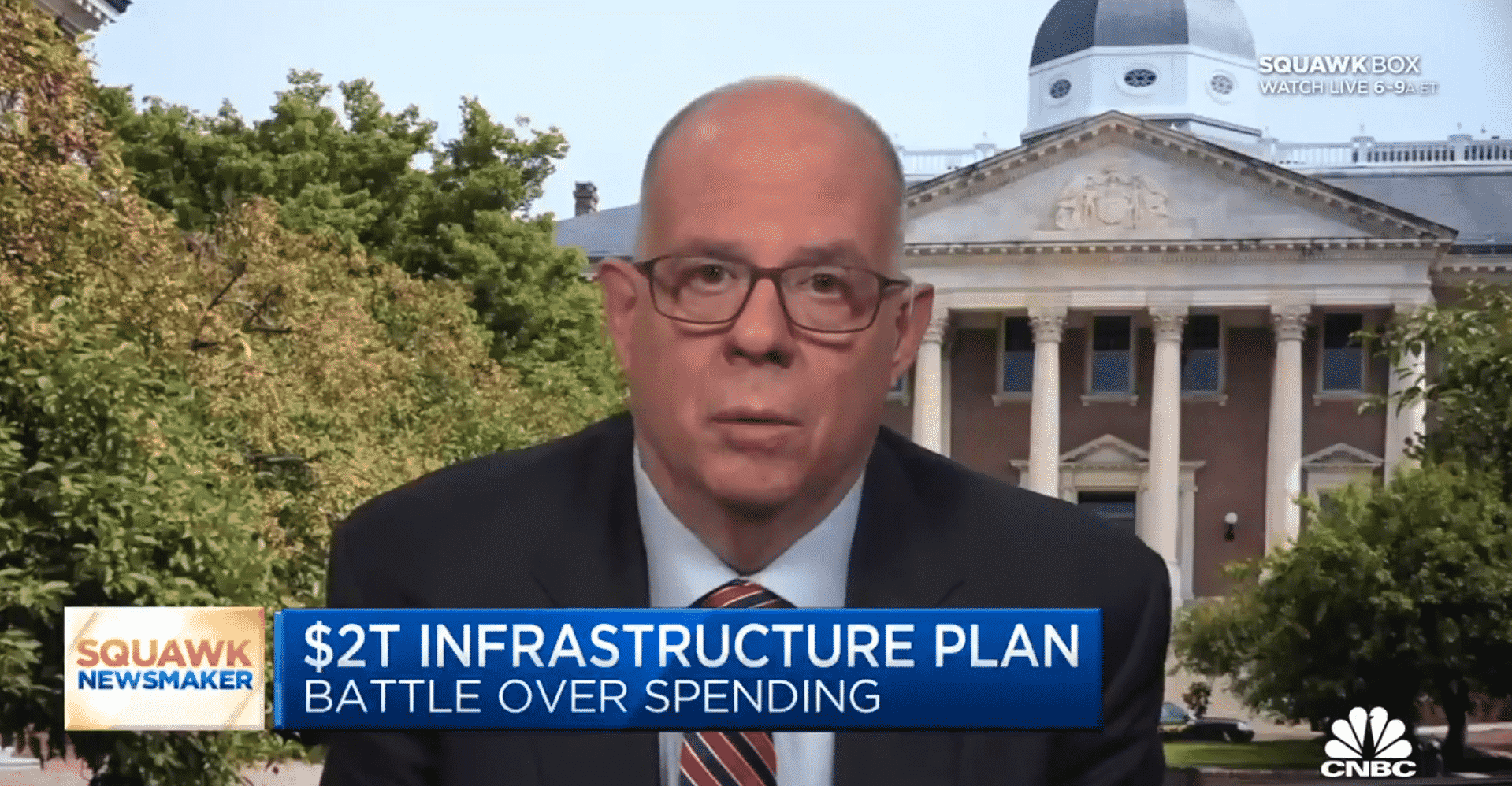Republicans are accusing President Joe Biden of using a proposed $2 trillion infrastructure plan to pass a wish list of Democratic spending priorities.
However, Gov. Larry Hogan (R-Md.) argues that addressing the nation’s crumbling infrastructure is a “critical issue” that should receive support from Democrats and Republicans and that it should not just be focused on physical infrastructure.
During an interview on CNBC on Monday, he addressed the current infrastructure debate following a two-day summit he hosted with lawmakers on the issue.
“Rebuilding America’s infrastructure is a critical issue that we all agree on, and we think it should be a bipartisan effort that has the support of Republicans and Democrats and that it should be focused on infrastructure,” Hogan said.
He continued, “Not just roads and bridges and tunnels that are crumbling and airports and ports, but also digital infrastructure and, you know, green energy and the grid. We can agree on finding that middle ground.”
However, Hogan appeared to dismiss part of Biden’s plan that aims to spend $400 billion on home-care services, which he said has “nothing to do with infrastructure” and “should be handled separately.”
Still, he said that Democrats and Republicans at the summit “reached a tremendous amount of agreement on the first several parts of the issue.” But how to pay for such a plan, Hogan said, remains the main sticking point.
Watch the video below:
"Rebuilding America's infrastructure is a critical issue that we all agree on, and we think it should be a bipartisan effort," says @GovLarryHogan. "There's a $1.6T difference between what the Republicans have proposed and what the Democrats have proposed." pic.twitter.com/HSkUmGFq8j
— Squawk Box (@SquawkCNBC) April 26, 2021
Biden has proposed spending over $2 trillion on infrastructure over eight years.
His plan would spend $621 billion to improve roads, bridges, and railways, $400 billion on home care services, $300 billion to boost American manufacturing, $213 billion to build or retrofit over two million energy-efficient housing units, $180 billion in investments in technology research, $111 billion on clean water programs, $100 billion to build or improve public schools, $100 billion to vastly expand access to high-speed internet, $100 billion on workforce development, and $18 billion to improve Veterans Affairs’ hospitals and other federal buildings.
To pay for his plan, Biden is proposing to raise the corporate tax rate from 21% to 28% while making it harder for corporations to claim to be foreign companies and avoid paying taxes.
Senate Minority Leader Mitch McConnell (R-Ky.) has signaled that Republicans will oppose Biden’s plan, which he called a “Trojan horse.”
Senate Republicans unveiled their own $568 billion infrastructure bill in response to Biden’s proposal, which they hope to use as a basis for negotiations. However, Democrats have balked at the Republican bill, which they consider to be insufficient.

























 Continue with Google
Continue with Google